Introduction
In the tapestry of human history, crises have often been the crucibles in which the resilience and adaptability of civilizations are tested and refined. The present epoch is no exception. As we navigate through the challenges of the 21st century, the confluence of global pandemics, environmental degradation, political unrest, and technological upheavals presents both crises and opportunities that demand our attention. This blog aims to explore the multifaceted nature of the present challenges and discern the invaluable lessons they offer for the shaping of a more resilient and sustainable future civilization.
1. Catalyst for Change
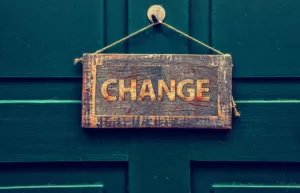
The COVID-19 pandemic, an unprecedented global health crisis, has not only exposed the vulnerabilities of our interconnected world but has also unveiled opportunities for transformative change. Nations that embraced science, technology, and international collaboration have demonstrated resilience in the face of adversity. The pandemic has highlighted the importance of investing in healthcare infrastructure, global cooperation in crisis response, and the need for equitable distribution of medical resources. It revealed the vulnerability of developing and impoverished nations to manage the pandemic, as wealthier countries prioritised their own citizens first. Whereas the situation should have been much more different than what we saw and people went through by struggling for vaccines.
2. Environmental Degradation

The alarming rate of environmental degradation poses an existential threat to our planet. From deforestation to climate change, the challenges are daunting. However, these crises can serve as a wake-up call for humanity to adopt sustainable practices. The imperative to transition towards renewable energy, conservation of biodiversity, and responsible consumption practices becomes ever more urgent. The lessons learned from the present can guide us towards building a harmonious relationship with the environment for the benefit of current and future generations. We also need to realise that so far in most of the cases we failed even with all that technology. The nature seems to beat us, therefore a consolidated and global effort is required to fight against this threat. We have to take each other on board and support. We being the part of a global village, everything affects each other no matter where we are and live in this world. Our interests, goals and motives are common and linked.
3. Political Unrest
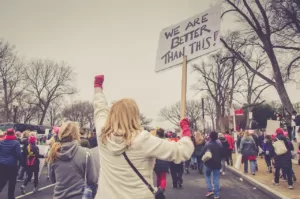
Political instability and social unrest are prevalent issues in various parts of the world. The present challenges underscore the importance of inclusive governance, respect for human rights, equality, and the need for effective institutions. By learning from current geopolitical crises, future civilizations can aspire to foster diplomatic solutions, uphold democratic values, and promote social justice. The present turmoil can be seen as an opportunity to refine the foundations of governance and build more resilient political systems. One major or minor conflict anywhere in the world affects the countries of another continent. In this global world our interests are interlinked, like supply chain, food, oil and other businesses. The international organisations need to be more efficient, proactive, decisive and neutral. The emphasis should be on mutual respect, equality, freedom of speech and right to live for everyone. So far these organisations failed to perform their role according to international laws and their charter. This not only created differences and conflicts but raised questions on the very existence of these organisations.
4. Harnessing Innovation for Good
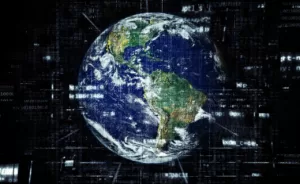
The rapid pace of technological advancements presents both promises and perils. From artificial intelligence to biotechnology, the present era witnesses unprecedented innovations that can reshape the fabric of society. To ensure a positive outcome, ethical considerations, responsible development, and inclusivity must be integral to technological progress. By learning from the ethical dilemmas and challenges posed by emerging technologies, we can guide the trajectory of future innovations towards the betterment of humanity. We have seen the role of technological developments, its impact on human and human development. So far it failed to produce the desired results. It was expected that with latest technology we would be able to produce more food, cost of living, produce more, safe and healthy atmosphere, more cost effective and within the reach of everyone. The facts remained different than what we were promised. The recession had been the major issue with expensive commodities and a wealth gap.
The recent development in artificial intelligence have also raised the eyebrows in the world. Its launch without any control and limit measures is not only a threat for the job sector but also for human development. The concerned organisations around the globe need to develop a policy so that this technology can only be used for the betterment of humanity and not for anything harmful or weaponization around the world.
5. Embracing Global Citizenship

The crises of the present era underscore the interconnectedness of our world. The lessons learned emphasize the importance of global citizenship, collaboration, and solidarity. Although we claim to be the citizens of the global world but the facts are different on ground. We can take the example of global pandemic once poor nations were left alone without any priority and in certain cases they were provided with expired vaccines. Future civilizations must build upon this understanding to address shared challenges such as pandemics, climate change, religious polarisation, inequality, racism and security. The present serves as a canvas upon which the principles of unity, empathy, and cooperation can be painted for the betterment of humanity.
6. Education as a Catalyst for Change

The present challenges highlight the critical role of education in shaping the mindset of future generations. By integrating lessons from crises into educational curricula, we can cultivate a generation equipped with the knowledge and skills needed to navigate complex global challenges. Education becomes a catalyst for change, fostering critical thinking, empathy, and a sense of responsibility towards the collective wellbeing of society and the planet. We must ask ourselves if current education system help us fight any of the above challenges or not. If not then what we need to develop and change. Being part of a global village or a global citizen it is vital to develop one education system so that it benefits everyone around the globe, especially poor nations.
7. Building Resilient Infrastructure
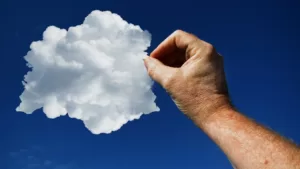
Infrastructure plays a pivotal role in determining a civilization’s resilience in the face of crises. The present challenges, whether in healthcare, environmental sustainability, or technology, emphasize the need for robust and adaptable infrastructure. Future civilizations must invest in resilient systems that can withstand shocks and adapt to changing circumstances. From healthcare facilities to sustainable energy grids, building the foundations of resilience becomes imperative. It would also help develop a more peaceful world for our generations to come.
8. Embracing Diversity and Inclusion

The present era confronts us with the imperative to address issues of inequality, discrimination, and social injustice. Building a resilient and sustainable future civilization necessitates the embrace of diversity and inclusion. By learning from the struggles of the present, future societies can aspire to create environments where every individual is valued, and opportunities are accessible to all, irrespective of their background. We have seen in recent past that countries stood against each other but their citizens opted for peace. The responsibility lies with the governments to respect the wishes of their people. This global village must respect the wishes of the people where they are more connected to each other than the governments. There is a dire need to develop a political system where the political representatives should be made to get the vote of confidence every year from their respective constituencies. It would ensure the commitments of respective representatives towards their mandate.
9. Need for a Bipolar World
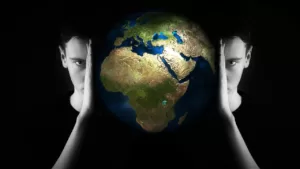
The post-Cold War era witnessed the emergence of a unipolar world, with a single superpower dominating global affairs. However, as we navigate the complex challenges of the 21st century, the call for a bipolar world is gaining momentum. A bipolar world, characterized by the presence of two major powers, inherently provides a system of checks and balances. In such a structure, each power is compelled to consider the interests and concerns of the other, preventing unilateral actions that could lead to destabilization.
The challenges of the 21st century, ranging from climate change to pandemics, require a collective and coordinated global response. A bipolar world fosters resilience by encouraging collaboration between major powers. Unipolarity has often been associated with hegemonic tendencies, where the dominant power seeks to impose its values and interests on others. A bipolar world mitigates this risk by offering a counterbalance. The presence of two major powers encourages a more nuanced approach to diplomacy and international relations.
In a bipolar world, the influence of major powers extends to different regions, providing a stabilizing force. The absence of a unipolar power attempting to exert influence in multiple areas simultaneously reduces the likelihood of regional conflicts escalating into global crises. A bipolar world introduces healthy competition between major powers, particularly in economic terms. Economic rivalry can drive innovation, technological advancements, and economic growth.
Advocating for a bipolar world does not necessarily imply a return to a Cold War-style confrontation. Instead, it can serve as a stepping stone towards a multipolar world where multiple major powers contribute to global governance. A bipolar structure, by promoting the idea of shared responsibility, can lay the foundation for a more inclusive international order where a multitude of voices and perspectives are represented.
Conclusion
The crises of the present era are not merely trials to endure but opportunities to learn and grow. By examining the challenges posed by the global pandemic, environmental degradation, political unrest, and technological upheavals, we can distill invaluable lessons for the construction of a resilient and sustainable future civilization. The canvas of the future is shaped by the brushstrokes of the present, and as stewards of our collective destiny, we have the agency to paint a portrait of a world that learns from crisis, embraces opportunity, and charts a course towards a better tomorrow.

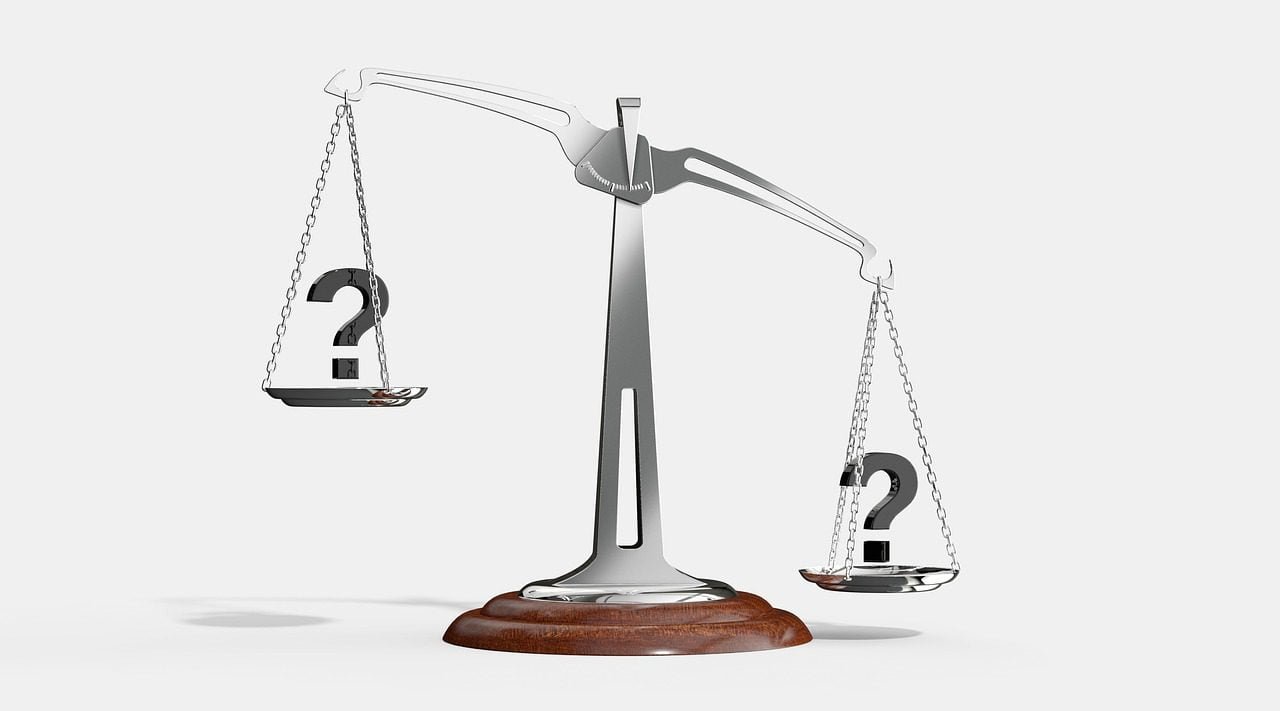

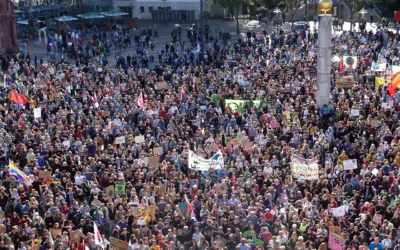


Березин Андрей Евроинвест [url=https://newprospect.ru/news/interview/andrey-berezin-est-mnogo-interesnykh-veshchey-kotorye-trebuyut-moego-vnimaniya/]https://newprospect.ru/news/interview/andrey-berezin-est-mnogo-interesnykh-veshchey-kotorye-trebuyut-moego-vnimaniya/[/url]
Доверительное отношение к клиентам
Сервис правый руль Москва [url=https://tokyogarage.ru/]https://tokyogarage.ru/[/url].
Vyacheslav Konstantinovich Nikolaev [url=https://spacecoastdaily.com/2023/08/vyacheslav-nikolaev-ecosystem-builder/]https://spacecoastdaily.com/2023/08/vyacheslav-nikolaev-ecosystem-builder/[/url].
Миотокс: инновационное решение для ботулинотерапии
миотокс отзывы в косметологии https://miotoks.ru/ .
Какое количество миотокса необходимо для успешной ботулинотерапии?
миотокс купить в москве https://www.miotoks.ru/ .
Миотокс в ботулинотерапии: ключ к молодости и красоте
миотокс препарат цена отзывы https://www.miotoks.ru .
Ваш автосервис №1.
Срочный ремонт автомобилей любой сложности.
авторемонт http://www.avtoservis-moscva.ru/ .
Сервис Лексус: ключ к долговечности и безопасности вашего автомобиля.
Lexus обслуживание http://www.lexus-remont-1.ru/ .
Экспертное обслуживание Хонда: забота о вашем автомобиле на высшем уровне.
Ремонт авто Хонда в Москве https://honda-avtoservis.ru/ .
Как выбрать квалифицированного специалиста для процедуры ботокса
сколько единиц ботокса нужно на лицо http://www.b-tox.store/ .
Уникальные услуги.
Быстрый и качественный сервис Инфинити.
Стоимость ТО Инфинити https://www.infiniti-remont-2.ru/ .
Доверьтесь профессионалам.
– Ремонт Mitsubishi без лишних затрат.
ТО Мицубиси http://www.mitsubishi-remont-2.ru .
Как быстро избавиться от неприятных бородавок
удаление бородавок лазером больно http://www.genitalnyeborodavki.store .
Какое значение имеет строительная экспертиза.
Как обеспечить качество строительной экспертизы.
Строительная экспертиза Московская область http://www.stroitelnaya-expertiza-moskva.ru .
Сравнение фитосауны и обычной бани: какую печь выбрать?
Печи для бань склад магазин http://www.pech-domoy.ru .
Для удобной транспортировки и установки.
Дизайнерская труба для дымохода.
Изготовление дымоходов цена https://www.dymohody-dlya-doma-i-bani.ru/ .
Как выбрать метод удаления бородавок
удалить бородавку салициловой кислотой http://www.genitalnyeborodavki.store/ .
Ремонт автомобиля: Почему важно оклеить пленкой?
Стоимость оклейки авто пленкой в Москве https://okleyka-avtomobilya-plenkoy.ru .
Жидкое стекло на все случаи.
Безупречный вид Вашего автомобиля на годы.
Полировка жидким стеклом Москва https://nanesenie-zhidkogo-stekla-na-avto.ru/ .
Как правильно ухаживать за потолком автомобиля после перетяжки в алькантару.
Перетяжка потолка автомобиля алькантарой potolok-alkantara-dlya-avtomobylya.ru .
Эффективные методы лечения акне на лице
акне на висках https://akne.fun/ .
Шаг за шагом: химчистка салона автомобиля
Мастер-класс по химчистке салона автомобиля
Простые способы химчистки салона автомобиля
Прайс на химчистку салона автомобиля https://himchistka-avtosalona.ru .
На текущий момент, процесс получения визы в Италию в Санкт-Петербурге требует предварительной записи в визовый центр. Из-за пандемии COVID-19 могут быть введены дополнительные требования к заявителям на визу.
Срочная виза Италия https://visa-v-italiyu.ru .
Лучший автосервис Ниссан в Вашем городе, где заботятся о Вашем автомобиле.
Надежный автосервис Ниссан для Вашего авто, где заботятся о каждой детали Вашего автомобиля.
Гарантия качественного сервиса от специалистов, используют только оригинальные запчасти.
Лучший выбор для автолюбителей – автосервис Ниссан, где каждый клиент ценится и уважается.
Опытные мастера по обслуживанию Ниссан, с гарантией качественного ремонта.
Обслуживание Ниссан http://nissan-remont-1.ru/ .
Выбор профессионалов в области строительной диагностики.
Системы мониторинга состояния строений.
Выполнение обследований зданий и сооружений Выполнение обследований зданий и сооружений .
Сервис на высшем уровне.
Ремонт автомобилей Хендай hyundai-avtoservis.ru .
Какие ошибки следует избегать при самостоятельной строительной экспертизе.
Значение строительной экспертизы для безопасности зданий.
Строительная экспертиза область https://stroitelnaya-expertiza-moskva.ru .
Основные аспекты технического надзора в строительстве, важность данного процесса.
Что учитывать при выборе технического надзора в строительстве, с целью минимизации рисков.
Подробности работы технического надзора, для поддержания контроля.
Риски, связанные с отсутствием технического надзора, и способы их решения.
Топ стратегий для улучшения технического надзора, которые пригодятся вам.
Методы технического надзора в строительстве, которые следует учитывать.
Строительный контроль в процессе строительства Строительный контроль в процессе строительства .
Идеальный выбор для обслуживания Toyota в столице, где профессионалы знают свое дело.
Профессиональный ремонт Toyota в столице, опытные мастера и современное оборудование.
Индивидуальный подход к каждому клиенту в автосервисе Toyota, испытайте на себе высокий уровень сервиса.
Профессиональный подход к каждой детали, для тех, кто ценит свое время.
Топовый сервис для японских автомобилей в столице, где ваш автомобиль находится в надежных руках.
Профессиональный ремонт Toyota в столице, подтвержденный репутацией и довольными клиентами.
Профессиональный ремонт и обслуживание Toyota, где доверяют свой автомобиль только профессионалам.
Тойота автосервис Москва https://www.toyota-remont.ru .
дробеструйный станок для очистки металла http://drobestruynaya-kamera.ru/ .
Популярные применения
Основные мифы о ботулинотерапии: правда или вымысел?
ботулинотерапия жевательных мышц https://www.botocx.ru/ .
Освободите себя от забот с визой во Францию при помощи наших экспертов
Помощь в оформлении визы во Францию http://www.visa-france-spb.ru .
Приобретайте продукцию с уверенностью в качестве благодаря аккредитации лаборатории
Строительная лаборатория http://www.stroitelnaya-lab.ru .
механизированная штукатурка москва механизированная штукатурка москва .
вскрыть дверь фирмы http://www.vskrytie-zamkov-moskva111.ru/ .
Секреты успешного лечения акне
Ретинол пальмитат лечение акне https://www.lechenie-akne.ru/ .
Ухаживайте за мебелью с выездной химчисткой, как профессионалы
Химчистка на дом дешево https://www.ximchistka-mebeli1.ru/ .
торшер с хрустальными подвесками торшер с хрустальными подвесками .
Экспресс-диагностика электрики для автомобилей kia, с применением новейших технологий.
Автосервис КИА Москва http://kia-remont-1.ru/ .
Безопасные средства и опытные специалисты
Сколько стоит почистить диван на дому цена https://ximchistka-divanov-msk.ru/ .
Как безопасно использовать ботокс для лица.
Ботокс от ямок после акне Ботокс от ямок после акне .
Дерматологические советы по лечению акне
Лечение акне на лице лечение акне на лице .
porotherm https://kirpich-bruschatka.ru .
Гарантированное качество и долговечность
Химчистка диван http://ximchistka-divanov-msk.ru/ .
10 способов быстро избавиться от прыщей
Каковы наиболее распространенные мифы о прыщах? https://prisch.com.ru .
услуги по клинингу parkmebeli.by .
что такое клинер в маникюре vytyazhka-dlya-manikyura.ru .
журналы макияжа https://www.zhurnal-o-krasote11.ru/ .
полусухая стяжка пола в нижнем новгороде полусухая стяжка пола в нижнем новгороде .
полусухая стяжка пола цена за квадратный метр с материалами https://www.mekhanizirovannaya-shtukaturka15.ru .
полусухая стяжка пола цена за квадратный метр с материалами полусухая стяжка пола цена за квадратный метр с материалами .
вскрытие замков недорого http://www.famagusta-nedvizhimost2.ru/ .
купить страницу вк дешево [url=https://www.kupit-akkaunt-vk.ru]https://www.kupit-akkaunt-vk.ru[/url] .
nederlands casinos nederlands casinos .
Как проводится процедура ботокса? Процедура включает инъекции ботулотоксина в целевые мышцы с использованием тонких игл
поднятие бровей ботоксом https://b-tox.ru/ .
внутренний аудит сайта https://www.prodvizhenie-sajtov15.ru/ .
top casino’s http://bestegokautomaten.nl/ .
Как долго сохраняется эффект Релатокс? Эффект от Релатокс сохраняется в среднем 3-6 месяцев, в зависимости от зоны инъекции и индивидуальных особенностей организма
релатокс это http://www.relatox.b-tox.ru/ .
купить аккаунт вк мужской http://www.kupit-akkaunt-vk.ru .
matras matras .
авто под выкуп в москве выкуп авто с пробегом
https://formomebel.ru/divany/modulnye
online casino’s nederland online casino’s nederland .
anosondy https://mikrocz.cz/
Все секреты биоревитализации в одном месте, широкий выбор биоревитализации для каждого типа кожи, как выбрать правильную клинику для биоревитализации, плюсы и минусы биоревитализации в домашних условиях, лучшие средства для биоревитализации кожи, что говорят клиенты после процедуры биоревитализации, биоревитализация: видеоинструкция по процедуре, процедуры биоревитализации для мужчин: эффективность и результаты, инъекционная биоревитализация или мезотерапия: что выбрать, новые технологии в области биоревитализации кожи.
препараты для биоревитализации названия https://www.biorevitalization.com.ru/ .
купить микронаушники https://jasdam.cz/
https://rybalka-v-rossii.ru – сайт о рыбалке в России, способах ловли рыб, и выборе правильных снастей.к
либет казино вход lee bet
купить флешку https://meflash.ru/
https://proauto.kyiv.ua здесь вы найдете обзоры и тест-драйвы автомобилей, свежие новости автопрома, обширный автокаталог с характеристиками и ценами, полезные советы по уходу и ремонту, а также активное сообщество автолюбителей. Присоединяйтесь к нам и оставайтесь в курсе всех событий в мире автомобилей!
Are you looking for reliable and fast proxies? https://fineproxy.org/account/aff.php?aff=29 It offers a wide range of proxy servers with excellent speed and reliability. Perfect for surfing, scraping and more. Start right now with this link: FineProxy.org . Excellent customer service and a variety of tariff plans!
bestes online casinos http://bestegokautomaten.nl .
https://autoclub.kyiv.ua узнайте все о новых моделях, читайте обзоры и тест-драйвы, получайте советы по уходу за авто и ремонтам. Наш автокаталог и активное сообщество автолюбителей помогут вам быть в курсе последних тенденций.
https://mostmedia.com.ua мы источник актуальных новостей, аналитики и мнений. Получайте самую свежую информацию, читайте эксклюзивные интервью и экспертные статьи. Оставайтесь в курсе мировых событий и тенденций вместе с нами. Присоединяйтесь к нашему информационному сообществу!
Founded in Texas in 2002, Del Mar Energy quickly transformed into one of the leading players in the energy market, oil and gas extraction, road construction
Какие существуют мифы о биоревитализации? Один из мифов – что биоревитализация навсегда изменяет структуру кожи; на самом деле, эффект временный и проходит через несколько месяцев
что можно после биоревитализации лица что можно после биоревитализации лица .
продвижение сайтов в топ 10 москва http://www.prodvizhenie-sajtov-v-moskve111.ru .
купить матрасы купить матрасы .
lucky jet официальный сайт https://1win-luckyjet-ru.ru .
Как проводится процедура биоревитализации? Процедура включает инъекции гиалуроновой кислоты в проблемные зоны с использованием тонких игл или канюль
биоревитализация эффект [url=https://www.biorevitalizacia.com]https://www.biorevitalizacia.com[/url] .
Советы по выбору качественных материалов для перетяжки салона в столице.
Автоателье перетяжка салона http://www.poshiv-avtosalona.ru/ .
Выбор профессионалов: лучшие автоцентры детейлинга в Москве.
Детейлинг авто цена https://detailing-uslugi.ru .
Какие существуют аналоги биорепарации? Аналоги включают мезотерапию, биоревитализацию и процедуры с использованием других увлажняющих и восстанавливающих препаратов
биорепарация лучшие препараты https://www.biorevitalizacia.com .
this best blog for this topic
Широкий выбор медицинских расходных материалов для профессионалов, которые удовлетворят все ваши потребности.
Расходные материалы медицинского назначения https://www.medtovarka.ru/ .
Не рискуйте своим здоровьем, носите медицинские одноразовые маски, проверенные временем
Маски медицинские одноразовые 3х слойные https://www.promedmasky.ru .
купить диплом магистра http://ukr-diplom.ru/ .
Делаем отличное предложение для вас провести консультацию (аудит) по увеличению продаж а также прибыли в вашем бизнесе. Формат аудита: персональная встреча или онлайн конференция по скайпу. Делая очевидные, но не сложные усилия, доход от ВАШЕГО коммерциала получится поднять в много раз. В нашем багаже более 100 испытанных утилитарных инструментов умножения торгов и прибыли. В зависимости от вашего коммерциала подберем для вас максимально крепкие и сможем постепенно внедрять.
http://r-diplom.ru/
купить аттестат за 11 класс https://school-10-lik.ru/ .
Ежегодно в течение сентября проводится Тюменский инновационный форум «НЕФТЬГАЗТЭК».
Форум посвящен устройству способов инноваторского развития секторов топливно-энергетического комплекса, обсуждению и поиску заключений, созданию благоприятных условий для расчета инновационных проектов. Ежегодный тюменский форум представляетсобой авторитетной дискуссионной площадкой по увеличению роста нефтегазовой ветви в Российской Федерации, содержит большой авторитет и своевременность, созвучен корпоративной стратегии продвижения инноваторского направления в России
https://neftgaztek.ru/
Рассчитайте нужное количество мешков для мусора на месяц.
Купить мешки для мусора https://meski-musornii.ru/ .
Установка автокондиционера в Москве: как подготовиться.
Диагностика авто кондиционера https://www.diagnost-avtokondicioner.ru .
купить аттестат http://school5-priozersk.ru .
Профессиональный ремонт автокондиционеров в Москве, оперативное обслуживание.
Car air conditioner repair helps avoid system overheating. https://remont-avtokonditsioner.ru .
Профессиональный подход к обслуживанию кондиционера в Москве, что обязательно учесть.
Заправка кондиционера в машину помогает поддерживать необходимую температуру. http://www.zapravka-avtokonditsioner.ru .
Всем привет)
Будучи студентом, я наслаждался учебой до тех пор, пока не пришло время писать диплом. Но паниковать не стоило, ведь существуют компании, которые помогают с написанием и защитой диплома на отличные оценки!
Изначально я искал информацию по теме: купить диплом бакалавра, купить диплом в северодвинске, купить диплом в балашове, купить диплом нового образца, купить диплом во владикавказе, затем наткнулся на http://schurovo.bbok.ru/viewtopic.php?id=5876#p27934, где все мои учебные вопросы были решены!
Удачи!
http://crimea.bestbb.ru/viewtopic.php?id=523#p657
Всем привет)
Будучи студентом, я наслаждался учебой до тех пор, пока не пришло время писать диплом. Но паниковать не стоило, ведь существуют компании, которые помогают с написанием и защитой диплома на отличные оценки!
Изначально я искал информацию по теме: купить диплом института, купить диплом в армавире, купить диплом в новочеркасске, купить диплом штукатура, купить диплом в краснодаре, затем наткнулся на https://telugusaahityam.com/??????_??????_????????_??????:_??????_?_???????
http://forum-pmr.net/member.php?u=42748
http://freedomrp.getbb.ru/viewtopic.php?f=110&t=653
http://vipmails.0pk.me/viewtopic.php?id=5778#p12979
, где все мои учебные вопросы были решены!
Успехов в учебе!
http://p99946c6.beget.tech/2024/05/30/kupit-diplom-oficialnoe-oformlenie-i-garantii.html
Приветствуем вас, друзья!
К вам обращается компания СЕО продвижения XRumer LLC.
Мы видим, у вас относительно молодой сайт и ему требуется СЕО продвижение в поиске. Мы предлагаем продвижение под ключ. Также у нас имеются доступные и качественные инструменты для СЕОшников. У нашей компании большой опыт, в арсенале присутствуют реальные кейсы – если интересует, покажем по запросу.
Наша компания готова предложить скидку 10% до конца месяца на все услуги.
Услуги:
– Размещаем трастовые ссылки (нужно абсолютно всем сайтам) – от 1,5 до 5000 рублей
– Размещаем 2500 безанкорных ссылок (желательно любым сайтам) – 3900 руб
– Прогон на 110000 сайтов (RU.зона) – 2900 руб
– 150 постов Вконтакте про ваш сайт (поможет получить относительно дешевую рекламу) – 3900 р
– Публикации про ваш сайт на 300 интернет-форумах (мощнейшая раскрутка интернет-сайта) – 29 тыс. рублей
– СуперПостинг – это прогон на 3 миллиона ресурсов (мощнейший прогон для вашего сайта) – 39 тысяч р
– Рассылаем рекламные сообщения по сайтам через форму обратной связи – договорная цена, будет зависеть от объемов.
Наши специалисты готовы ответить на любые вопросы.
Отчётность.
Оплата: Yoo.Деньги, Bitcoin, МИР, Visa, MasterCard…
Принимаем USDT
Telgrm: https://t.me/exrumer
Skype: Loves.Ltd
https://www.seobrand.com
https://xrumer.cc/xrumer/kak-zabanity-sait/
купить вкладыш к диплому [url=https://www.school5-priozersk.ru]купить вкладыш к диплому[/url] .
Привет всем)
Студенческая жизнь прекрасна, пока не приходит время писать диплом, как это случилось со мной. Не стоит отчаиваться, ведь существуют компании, которые помогают с написанием и защитой диплома на высокие оценки!
Сначала я искал информацию по теме: купить диплом в владикавказе, купить диплом в батайске, купить диплом в спб, купить диплом в минеральных водах, купить диплом россия, а потом наткнулся на http://mykinotime.ru/uskorennyiy-put-k-obrazovaniyu-kak-kupit-diplom-bez-lishnih-hlopot/, где все мои учебные проблемы были решены!
Успешной учебы!
https://local-urban-eats.mn.co/posts/58032854
Всем привет)
Будучи студентом, я наслаждался учебой до тех пор, пока не пришло время писать диплом. Но паниковать не стоило, ведь существуют компании, которые помогают с написанием и защитой диплома на отличные оценки!
Изначально я искал информацию по теме: где купить диплом, купить диплом в нижнем тагиле, купить диплом в волгодонске, купить диплом в волгодонске, купить диплом учителя физической культуры, затем наткнулся на http://c99596qr.beget.tech/2024/05/27/kupit-diplom-vash-put-k-uspehu.html
https://smolensk.forum2x2.ru/t2957-topic#6835
http://naturetour.ru/club/user/186/blog/1384/
http://rkiyosaki.ru/discussion/9374/kupit-diplom-prostota-i-udobstvo/
, где все мои учебные вопросы были решены!
Удачи!
https://www.import-moto.com/users/88
Советы по ремонту кожаной мягкой мебели на дому.
Реставрация кожаных диванов любой сложности — качественно и надежно. remont-kozhanoj-mebeli.ru .
Can biorevitalization be combined with fillers? Yes, combining biorevitalization with fillers can provide more comprehensive and long-lasting results, but this should be coordinated with a doctor
биоревитализация реви отзывы https://www.biorevitalizaciyaa.ru/ .
Натуральные средства для уборки кожи на дому, для безопасной уборки без агрессивных химических веществ.
Чистка кожаной мебели на дому позволяет сохранить её в идеальном состоянии, не покидая комфорт своего жилища: http://www.ximchistka-kozhanoj-mebeli.ru/ .
Износостойкие урны для мусора на улице из металла, гарантируют долговечность и функциональность.
Урны для мусора уличные необходимы для поддержания чистоты и порядка на общественных территориях: https://www.urna-dlia-musora.ru/ .
“Сколько времени занимает процедура?” – “Время процедуры зависит от количества и размера папиллом, обычно от нескольких минут до получаса.”
“How long does the procedure take?” – “The duration depends on the number and size of the papillomas, usually from a few minutes to half an hour.”
удаление лазером папилломы удаление лазером папилломы .
Профессиональные стиральные средства для химчистки кожаного дивана в Москве.
Чистка кожи дивана специальными средствами обеспечивает глубокое очищение и обновление поверхности: ximchistka-divanov-kozha.ru .
Dogs Cane Corso in Moscow
cane-corso.moscow
Где купить Дольче Габбана http://www.scm-fashion.ru .
wow carry raid http://kreativwerkstatt-esens.de/ .
ремонт стиральных машин в москве адреса http://centr-remonta-stiralnyh-mashin.ru .
ремонт стиральных машин в москве ремонт стиральных машин в москве .
Какой камин подойдет для вашего интерьера?, экспертное мнение и отзывы.
В магазине печей, каминов и дымоходов вы найдете все для создания уюта и тепла: https://www.magazin-pechej-kaminov-i-dymohodov.ru/ .
pve boost https://www.kreativwerkstatt-esens.de .
Что такое лазерное удаление бородавок и как оно проводится?
Лазерное удаление бородавок — это современный метод удаления доброкачественных новообразований на коже с использованием лазерного луча. Лазер испаряет ткани бородавки, не затрагивая здоровые клетки кожи. Процедура проводится под местной анестезией и занимает от нескольких минут до получаса, в зависимости от количества и размера бородавок.
What is laser removal of warts and how is it performed?
Laser removal of warts is a modern method of removing benign skin growths using a laser beam. The laser vaporizes the wart tissue without affecting healthy skin cells. The procedure is performed under local anesthesia and takes from a few minutes to half an hour, depending on the number and size of the warts.
вартокс от подошвенных бородавок отзывы https://epilstudio.ru/udalenie-borodavok .
Най-добрите книжки за творчество, които ще ви зарадват с ярките си образи и креативни задачи.
Детски книжки за оцветяване с вода: Детските книжки за оцветяване с вода са много забавни и лесни за използване: https://www.azbukivedi-bg.com .
фоновое озвучивание фоновое озвучивание .